Inheritances are a mixed blessing mingled with grief: even though you stand to win financially, this happens by losing a loved one. On top of that, suddenly getting a vast amount of wealth, property, or assets has the potential to flip some of your closest family relationships upside down. The sad reality is that some people are going to be envious of what you stand to gain, as they feel that they ‘deserve’ it more.
Redditor u/Common-Growth-6333 opened up to the AITA community about how she inherited half of the apartment that she currently lives in after her father passed away. She plans to keep the money from the sale; however, this is something that her mother is against, as she wants all the cash to pay for renovating her house. Scroll down for the full story. Meanwhile, Bored Panda reached out to the author for comment, and we’ll update the article once we hear back from her.
Inheriting property or money can fracture some relationships due to envy

Image credits: Rawpixel/Envato (not the actual photo)
A woman opened up about how her mom tried to pressure her into giving up her share of the inheritance
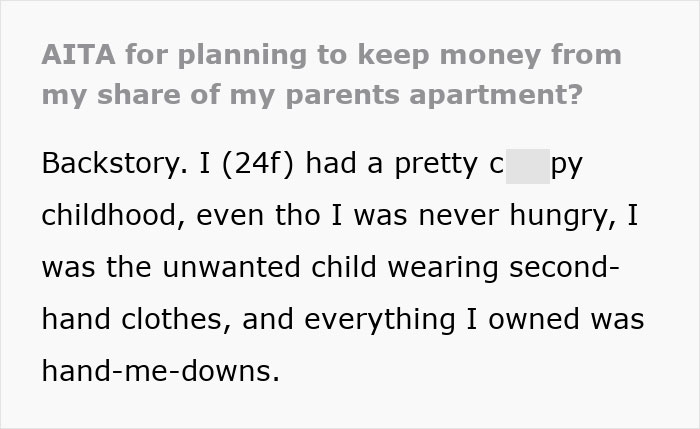

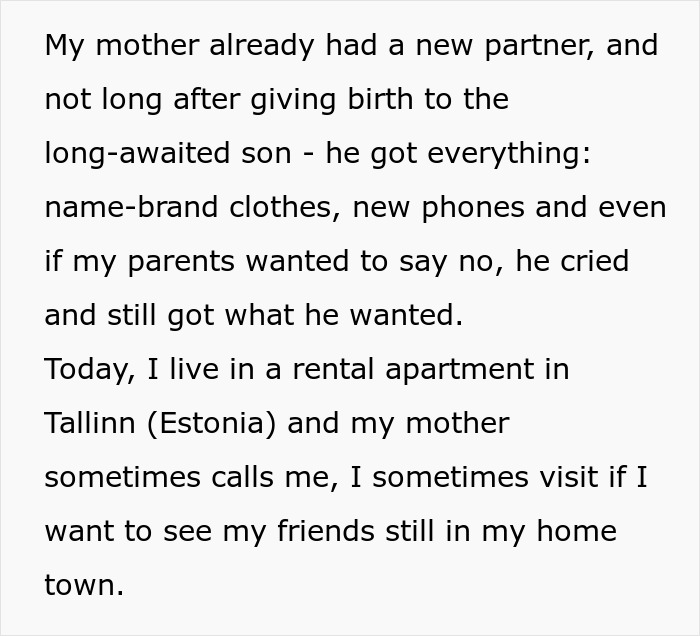

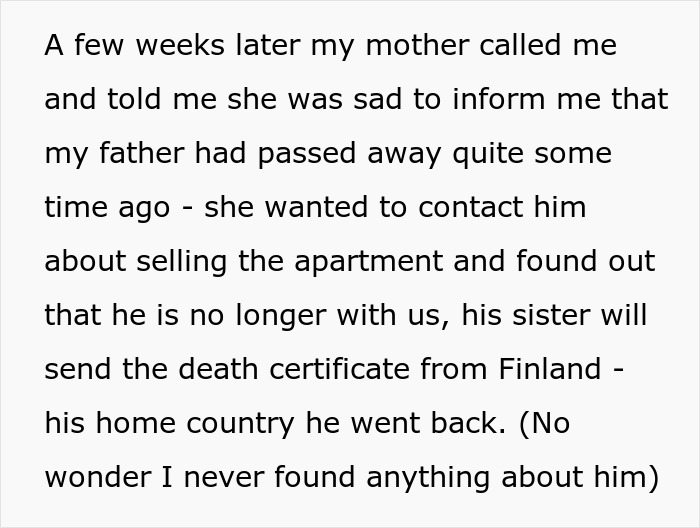

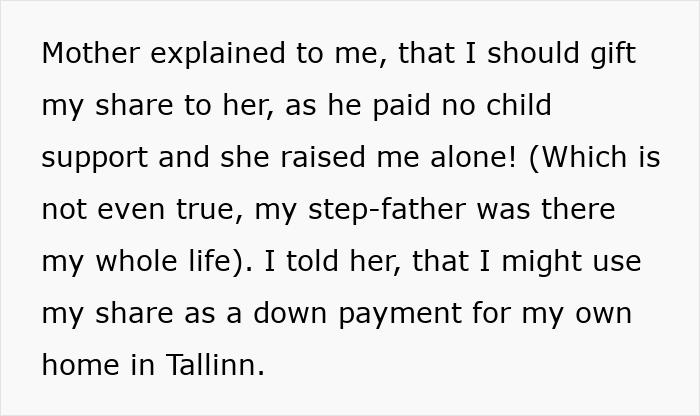

Image credits: astrakanimages/Envato (not the actual photo)
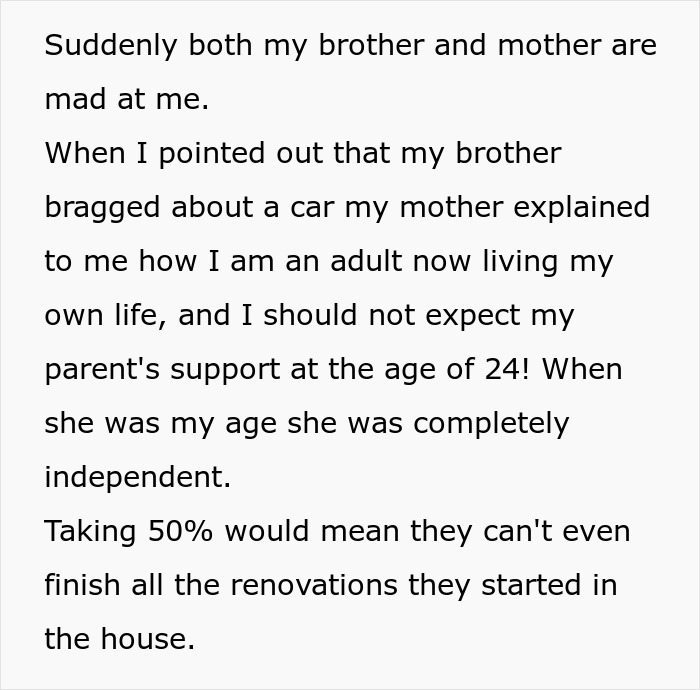





Image credits: Common-Growth-6333
The author always felt like she was treated worse than her stepbrother

Image credits: Rodrigo Pereira/Unsplash (not the actual photo)
In her post, which got 4.1k upvotes and over 560 comments, the author opened up about how her mother and stepfather always seemed to prefer their son over her. So, she started valuing her independence more and more.
“My mother already had a new partner, and not long after giving birth to the long-awaited son, he got everything: name-brand clothes, new phones, and even if my parents wanted to say ‘no,’ he cried and still got what he wanted,” u/Common-Growth-6333 writes.
Whether we like the idea or not, parental favoritism is quite common. According to recent research conducted by the American Psychological Association, parents tend to secretly have a favorite child, most usually their daughters or children who are agreeable, conscientious, responsible, and organized.
“For decades, researchers have known that differential treatment from parents can have lasting consequences for children. This study helps us understand which children are more likely to be on the receiving end of favoritism, which can be both positive and negative,” lead author Alexander Jensen, PhD, from Brigham Young University, said.
There are various ways in which parents can show favoritism. For example, by how much money they spend on their children, as well as how much (or little) control they exert over them. As per the study’s findings, parents were more likely to give older siblings more autonomy.
Broadly speaking, children who receive less favorable treatment tend to have poorer mental health and more strained family relationships.
Parental favoritism can lead to strained relationships within the family

Image credits: Derek Thomson/Unsplash (not the actual photo)
“Understanding these nuances can help parents and clinicians recognize potentially damaging family patterns. It is crucial to ensure all children feel loved and supported,” Jensen explained.
“The next time you’re left wondering whether your sibling is the golden child, remember there is likely more going on behind the scenes than just a preference for the eldest or youngest. It might be about responsibility, temperament, or just how easy or hard you are to deal with,” he added.
The BBC notes that this sort of differential treatment can lead to poor sibling relationships, feelings of inadequacy, and less positive relationships with one’s parents.
That being said, things aren’t completely rosy for the so-called ‘golden child’ either. “You might expect being a favourite child to come with many benefits, however, it can also cause emotional distress for adult children,” explained Megan Gilligan from the University of Missouri.
“We have found favoritism to be associated with higher depressive symptoms for favored children. We believe that this is because being a mother’s favorite child creates conflict in their favored children’s relationships with their siblings. We have found that this tension with siblings in adulthood is consequential for psychological well-being.”
What are your thoughts about the entire tense situation between the young woman and the rest of her family? Do you think she’s right to enforce her boundaries and keep her share of the inheritance? Why (not)?
Have you ever had relationships fracture over inherited property or money? Have you ever been a victim of parental favoritism? Let us know in the comments.
The author interacted with a lot of internet users who shared their thoughts














Here’s what some other readers said about the tense family drama





















